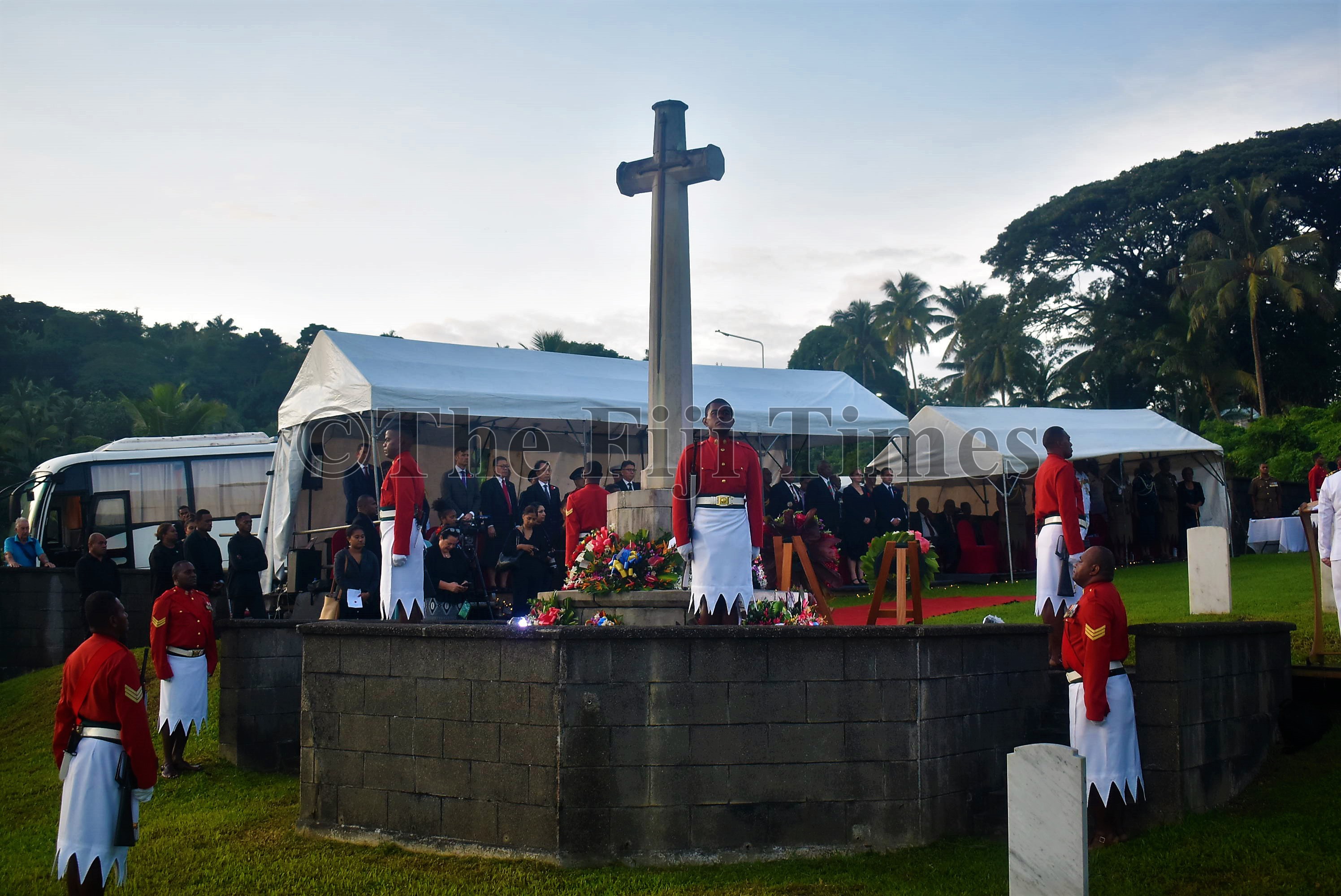At the break of dawn yesterday in Suva, there were men and women around the world who remembered a moment in history.
As usual, on this day, annually, a moving Anzac Day dawn service is held to commemorate soldiers who paid the ultimate price on the battlefield.
Prime Minister Sitiveni Rabuka and Minister for Home Affairs Pio Tikoduadua were among those who gathered at the Suva Military Cemetery early yesterday morning.
Also present was Vincent Lobendahn, whose grandfather, Paul Lobendahn, had served the Fiji military forces during World War II.
The dawn service has become a family tradition.
“My grandfather and his five brothers also served with the 1st Battalion of the Fiji Military Forces in WWII in the Solomons so this day is a special day for me to also reflect on their service to country,” he said.
“I want my kids and the next generation to remember and keep alive the memory of their great grandfathers who responded to the call of duty of their country to serve so that we can enjoy the freedoms that we have today.”
Last year, New Zealand High Commissioner Charlotte Darlow spoke about New Zealand and Australia’s shared military history with Fiji, which she said was of special significance.
She spoke about a shared sense of unity, comradeship, and collective security.
We are reminded that “today’s peace comes from the hard work and sacrifice of previous generations”.
For those who came in late, Anzac stands for Australian and New Zealand Army Corps.
We are reminded about how history lays bare the horrors of the battle fields.
On April 25, 1915, Australian and New Zealand soldiers formed part of the allied expedition that set out to capture the Gallipoli peninsula.
They were known as Anzacs.
The history books tell us of death, and destruction.
It tells us horrific stories, sacrifices and the massive loss of lives.
The battle lasted 10 months, three weeks and two days.
The campaign was intended to force Germany’s ally, Turkey, out of the war, and by the time it ended, more than 130,000 men had died.
That period in the history of our world helped to mould and shape the nations of Australia and NZ.
In the face of that, we are reminded about Russia’s invasion of Ukraine, and the conflict in Gaza, and the large number of people who have died in these volatile areas.
Let us reflect on these senseless wars, and senseless deaths.
Let us be reminded about why wars must be avoided as we reflect on the loss of lives, the emotional trauma, and despair of those impacted, stuck in the cross-fire, and suffering.
We are reminded about sacrifices and the many acts of heroism in horrific situations.
We are reminded about selfless giving, and how people come together to assist one another in times of need.
We are reminded about commitment and consideration for the welfare of others in need and concern for those in the direct line of fire in volatile zones around the world.
Looking at the figures, some 16,700 New Zealanders died from a population of one million: one of the highest casualty rates per capita of any nation that fought in Gallipoli.
We remember servicemen and women in conflict zones.
We remember the fallen and we acknowledge their sacrifice.
Lest we forget!






